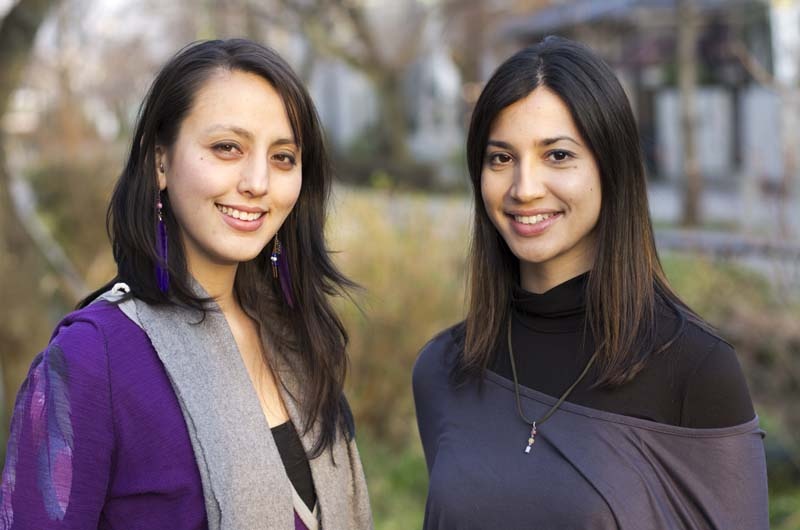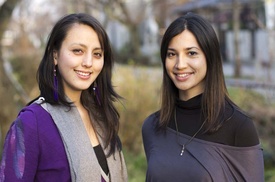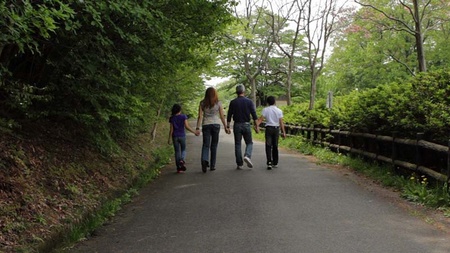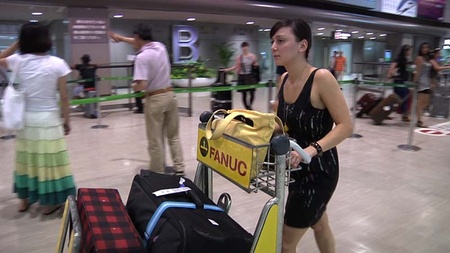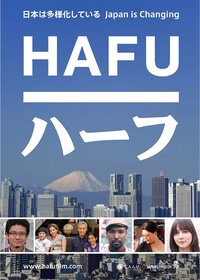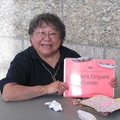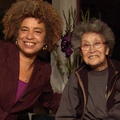The documentary examines multiracial and multicultural narratives in modern Japan.
In a country often perceived and proclaimed to be racially and culturally homogeneous, shifting demographics in Japan are challenging what it means to be “Japanese.” International marriages have steadily risen over the years in Japan and 1 in 49 babies are now born to mixed-race parents.
Hafu: the mixed race experience in Japan is a documentary that investigateswhat it means to be multiracial and multicultural in a society where common beliefs link Japanese identity to both cultural and phenotypic characteristics.
Five “hafus”—the Japanese word for people who are half-Japanese—featured in the film face obstacles from language and cultural barriers to the search for community and belonging in Japanese society and ultimately better understanding of one’s identity.
The two filmmakers, Megumi Nishikura and Lara Perez Takagi are hafus themselves. Nishikura, a Japanese American, and Takagi, who is Japanese and Spanish, both come from multicultural backgrounds. Each spent different parts of their childhoods in various countries and faced their own challenges adapting to an intersection of cultures and languages. It was each filmmaker’s unique international background and experience living in Japan that led to the conclusion: a need exists to tell the stories of the hafu experience in Japan.
“I personally feel that there is this unspoken definition of what it means to be Japanese and hafus are often not included,” says Nishikura.
Speaking of her own experience living in Japan, Takagi described how people would automatically classify her as a “foreigner” because of the way she looks. Born in Tokyo, but raised on multiple continents as a diplomat’s daughter, Takagi returned to Japan to live after completing her undergraduate degree.
“After all the years I spent there [in Japan] I realized…it’s impossible for me to be ‘Japanese’ because my mannerisms are different, my behavior is… not [like] the stereotypical young girl that they would expect.”
An individual featured in the film, David Yano, is no stranger to such societal expectations and outsider classifications. David was born to a Japanese father and Ghanaian mother, and despite living in Japan most of his life, David is frequently reminded that the optics of his genetic makeup is not considered inherently “Japanese” to many people he encounters in Japan. His search for his identity, however, inspires his charity work in Ghana, which in turn ignites further understanding of his identity.
Both Nishikura and Takagi acknowledge that they can relate to all of the individuals in the film, but Nishikura’s educational experience was admittedly similar to that of Alex Oi.
Alex, a young boy of Japanese and Mexican heritage, struggles with issues of bullying and trying to make sense of his multicultural identity. The film follows him as he adjusts to the transition from Japanese to international school. Though Nishikura never experienced bullying herself, she did make the same transfer in Japan’s education system and recalls experiencing the same frustration Alex felt from having to navigate multiple languages and cultures at a young age.
Hafu experiences are not always as visible in Japan. In fact, when it comes to mixed-race marriages in Japan, Nishikura explains that, “demographically we found more Japanese male partners…tend to marry Asian females…so [hafus of these couples] are not as visible.”
Korean-Japanese hafu, Fusae Miyako, is an example of this less visible hafu narrative in the film. For Fusae, while her ethnicity may not be as evident as other hafus, she grapples with self-acceptance and the same journey to find a sense of belonging and community in Japanese society. As mixed race marriages between Japanese and other Asian nationals make up the majority of mixed-race marriages, Fusae’s story is an increasingly important story to tell.
Other narratives in the film include that of Sophia Fukunishi, a Japanese Australian raised in Syndey who decides to move to Japan for the first time to explore her cultural heritage and identity; and Edward Sumoto, a Japanese Venezuelan who formed an online community of mixed-race people into a group called “Mixed Roots”.
While the stories of those featured in the film capture a wide range of hafu experiences, they are by no means comprehensive, nor are they meant to be. Through the multi-faceted, self-narrated stories of the five subjects, the film captures a unifying narrative that above all, every individual is different and the search for one’s identity is unique.
The journey to better understand oneself is a universal symptom of the human condition, and the film maintains a certain approachability to which anyone, particularly someone of a multiracial or multicultural background, can relate.
According to Nishikura and Takagi, the film has been well received at screenings in the United States, and they are currently looking for distribution in Japan. Nishikura hopes that “this film serves as a conversation starter about the changing demographics of Japan and what it means for its future.” However, “in order to even begin to understand what this might mean for Japan, the Japanese people must understand the day to day experience of the mixed-Japanese and how hafus feel about living in Japan.”
For Nishikura, it is her dream “that this through this film, a new definition of what it means to be Japanese, one which includes hafus, begins to emerge.”
This film is indeed a step in the right direction.
* * *
To learn more about the film, please visit http://hafufilm.com/
FILM SCREENING:
Hafu: The Mixed Race Experience in Japan
by Lara Perez-Takagi and Megumi Nishikura
May 8 from 7:30pm
at the Japanese American National Museum
(National Center for the Preservation of Democracy)
Admission to the screening is free, but reservations are required.
To reserve your tickets, please contact agiffen@janm.org or reserve your tickets here.
The screening is in collaboration with the Los Angeles Asian Pacific Film Festival. For more information on the festival, click here.
© 2013 Mai Tanaka


